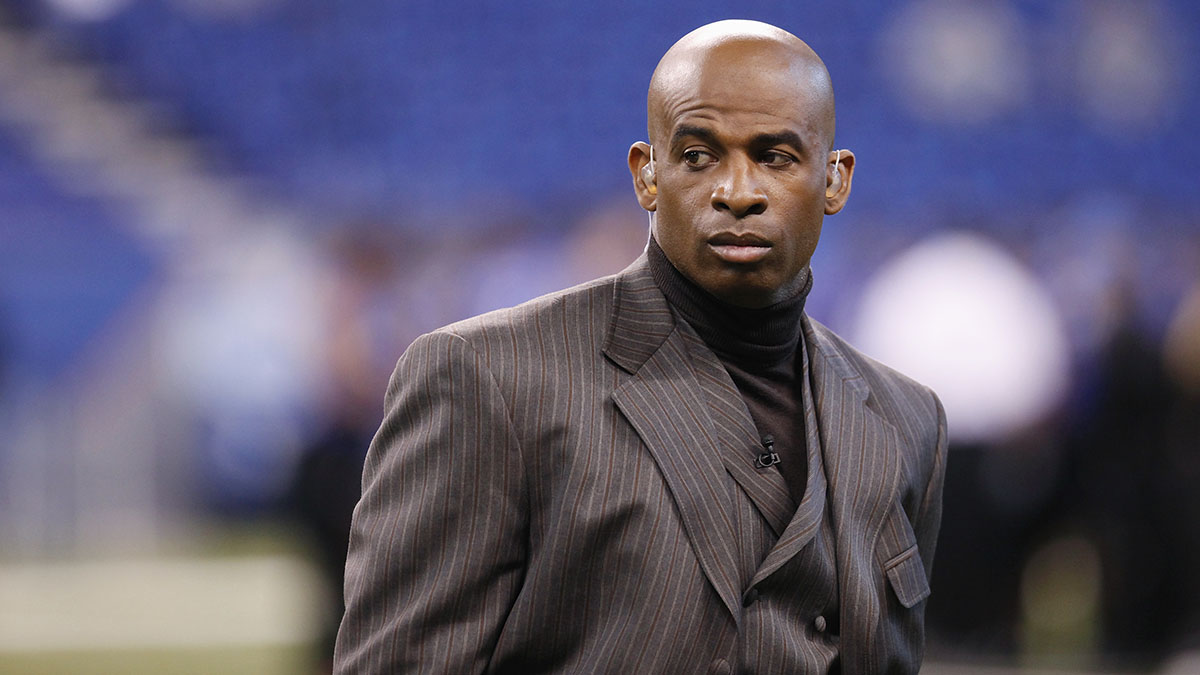If you look good, do you play better?
Why this matters
Looking good can give you confidence but science shows it can also help an athlete play better.
As rock group ZZ Top immortalized in song: “Every girl’s crazy ‘bout a sharp dressed man.”
It’s not how you feel, it’s how you look!
Hall of Fame cornerback Deion Sanders coined the phrase, “If you look good, you feel good, and if you feel good, you play good.” What initially gave off the appearance of just another one of “Primetime’s” classic arrogance may actually hold merit.
Athletes in professional sports today embody this ideal. Looking good on the field raises their confidence and comfortability — qualities that are extremely important to elite athletics.
We know that clothing has the ability to considerably change the perceptions and reactions of others.
High school students who dressed more formally were perceived as more intelligent among both professors and other students. Even therapists who dressed less casually were more likely to have repeat patients, according to a study.
What if clothing could have the opposite effect — not only would dressing to impress give us power over others but over ourselves as well.
Dr. Adam Galinsky, a professor at the Kellogg School of Management at Northwestern University, argues physical experiences and the experience of wearing clothes and how that makes you feel triggers “abstract concepts and their symbolic meanings.”
“When a piece of clothing is worn, it exerts an influence on the wearer’s psychological processes by activating associated abstract concepts through its symbolic meaning,” wrote Galinsky for a 2012 paper that appeared in the Journal of Experimental Social Psychology. “Similar to the way in which a physical experience exerts its influence.”
The term, coined by Galinsky, is “Enclothed Cognition.”
“I love the idea of trying to figure out why, when we put on certain clothes, we might more readily take on a role and how that might affect our basic abilities.” said assistant professor of psychology at Barnard College, Joshua Davis.
[beauty_quote quote='“Clothes invade the body and brain, putting the wearer into a different psychological state. You have to wear the coat, see it on your body, and feel it on your skin for it to influence your psychological processes.” - Northwestern University professor Dr. Adam Galinsky']
The study featured undergraduate students who were either given a white doctor’s coat or told to wear street clothes and were administered a test for selective attention, such as spotting minor differences in similar pictures. Those who wore the doctor’s coat made about half as many errors as those in street clothes.
Physicians tend to be more careful, meticulous and aware. Therefore, the students who put on the coats had acquired a heightened sense of attention to detail.
“Clothes invade the body and brain, putting the wearer into a different psychological state,” Galinsky said. “You have to wear the coat, see it on your body, and feel it on your skin for it to influence your psychological processes.”
For professional athletes, expressing yourself and being confident in your self-image is one way to give yourself an edge on gameday.
“I believe it’s a placebo effect or whatever you want to call it. There’s a role in how you dress and how you perform,” Odell Beckham Jr. said in an interview with Complex. “When you feel good, look good, you play good.”
“I look forward to when (Nike) sends me pictures of what I’m gonna wear this week, and I try and get in the mind frame in what I’m gonna do in these.”
Self-confidence and conceptualization are important aspects for positive performance in everyone but especially among professional athletes. The majority of physiologists contribute positive self-confidence to success and performing at consistently high levels. Without it, it is much harder for individuals to reach their goals in school, at work and even in sports.
“It becomes more and more important the higher level the athlete is,” said Kristin Hoffner, principal lecturer and professor of kinesiology at Arizona State University. “Obviously when you’re younger, just being bigger, faster, stronger is enough. But when everyone is the best, it really becomes who can stay composed under pressure and who can stay motivated.”
While athletes are inherently different, confidence and the drive to succeed are most important qualities. When athletes feel confident, they are more readily able to turn sporting potential into superior performance.
Conversely, when they feel unsure of themselves, the slightest setback or smallest hurdle can have an inordinate effect on performance.
Any way for athletes to feel more self-confident is imperative to success.
As the wise Deion Sanders said, “When you dress for success, success usually finds you. Bring your ‘A’ game!”
Ross Andrews is a senior journalism major at Arizona State University


